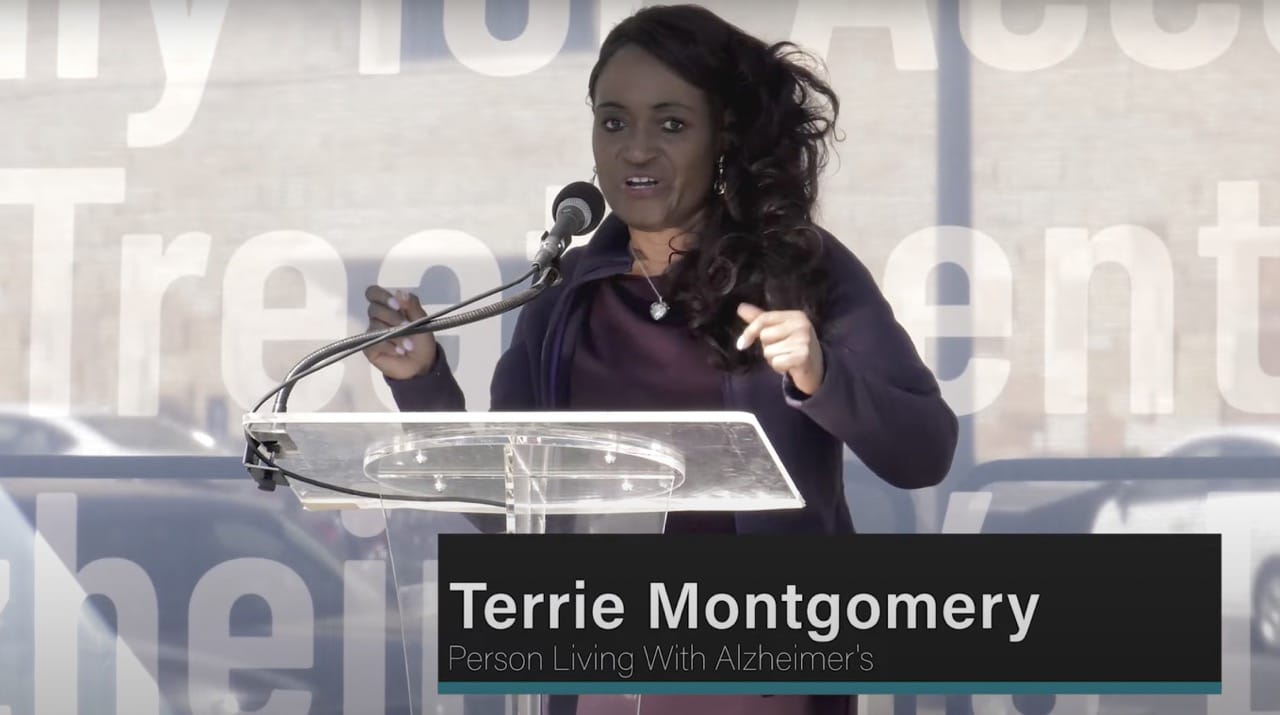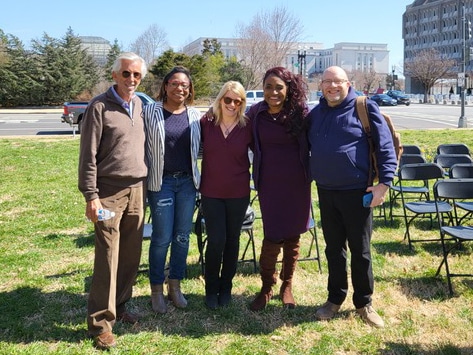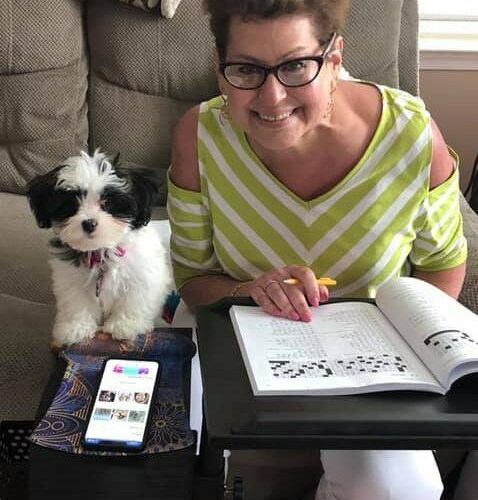Reporter Phil Gutis, a board member for emerging Alzheimer’s advocacy group Voices of Alzheimer’s, takes a hard look at what more the Centers for Medicare/Medicare Services could be doing for Americans living with Alzheimer’s.
During the height of the AIDS crisis 35 years ago, a few hundred people gathered one night in the NYC Lesbian and Gay Community Center to hear an impassioned plea from the author, playwright and self-proclaimed rabble-rouser Larry Kramer. Kramer had grown weary of public and governmental apathy toward the AIDS crisis, and with several hundred community members, he launched an organization called ACT UP. It grew to be an astoundingly influential direct-action organization that changed public health policy and the perception of people living with AIDS.

ACT UP’s infamous logo: A pink triangle with the words “Silence Equals Death.”
Years ago, I worked with ACT UP and other organizations — like Heritage of Pride — that sought to bring additional visibility to the causes of gay rights. Today, my focus has evolved (slightly) but my sense of obligation to elevate issues hasn’t waned: I’m delighted to be a founding board member of a newly launched organization called Voices of Alzheimer’s.
Our tagline: “Our Minds. Our Lives. Our Choices.” It isn’t quite as catchy as Kramer’s, but we hope to bring the same passion and energy (and just maybe some of the tactics) I remember from ACT UP to the Alzheimer’s movement. And our goals are equally ambitious.
I’m particularly excited about our first campaign: targeting the Centers for Medicare/Medicare Services for what the VOA believes is a systemic failure to cover FDA-approved diagnostics and treatment for Alzheimer’s.
Medicare and Alzheimer’s: a problematic history
It is VOA’s belief that over the last decade, Medicare has consistently discriminated against people with Alzheimer’s by refusing to broadly cover the most critical components of basic Alzheimer’s care.
As folks probably know, Medicare is the leading healthcare insurer for people over 65 in the United States. It serves some 60 million people, and it’s the primary health insurer for around 85 percent of people living with Alzheimer’s and related cognitive illnesses.
Yet, members of the VOA — people living with Alzheimer’s, and living through all the hoop-jumping required to get insurance coverage for diagnostics, symptomatic treatments and other critical care — have consistently seen CMS make decisions that negatively impact this community.
Case in point: Few people know this but over the last 10 years, the FDA has approved the use of several types of PET and other brain scans to help diagnose (or rule out) Alzheimer’s, but CMS has not extended Medicare coverage to use of the available technology for earlier and more accurate diagnosis, leaving many without a definitive confirmation of their condition.
It’s no wonder people were out in droves this spring demonstrating.

Why Voices of Alzheimer’s?
As I mentioned, I’m proud to say that I’m a founding member of the board of Voices of Alzheimer’s and delighted to have been part of the thinking that went into its creation. But I can hear the groans: Another Alzheimer’s organization? Why in the world does the world need another Alzheimer’s organization?
I understand, I really do. I was thinking just that thought myself only a few months ago.
After all, I serve on the Board of the Delaware Valley Chapter of the Alzheimer’s Association. I’m an ambassador to Brian Fitzpatrick, my member of Congress, and a leadership level member of the Alzheimer’s Impact Movement, the affiliated lobbying arm of the Alzheimer’s Association.
So, you might ask: What convinced me that we needed another organization to complement the work of the Alzheimer’s Association, US Against Alzheimer’s, and the myriad other organizations doing excellent work in this space each and every day?
And here’s my answer: I believe we need an organization that not only talks about Alzheimer’s and other cognitive diseases, but does so from the perspective of the person living with the disease and their care partners. Voices of Alzheimer’s stands apart in that it is guided and led by those affected by cognitive illnesses.
Our president, Jim Taylor, is the care partner of an astounding advocate and amazing person Geri Taylor, who has been living with Alzheimer’s for more than a decade. Our board includes five people, myself included, who are living with cognitive impairment: Geri Taylor, Jay Reinstein, Terri Mongtgomery and Rebecca Chopp.
We’re determined to include the voices of people living with Alzheimer’s in all the work we do.
Those voices are becoming increasingly forceful as the face of Alzheimer’s changes. Scientists now believe that symptoms of cognitive decline can first appear years and years and years before development of full-blown Alzheimer’s.
As younger people like myself (diagnosed at age 54 and teetering on the edge of turning 61 as I type) receive the troubling news that we have the pathology and symptoms of early cognitive disease, we’re increasingly ready to fight.
We will push hard to make sure that all voices of people with Alzheimer’s are heard in our advocacy. But we seek to add to the compelling stories of late-stage suffering with the passion and energy of those newly diagnosed in their forties, fifties or sixties.
For those of us who are still living well with a cognitive diagnosis — and the generations that follow us who may believe they are at risk because of either family history or other factors — we hope to change the face of Alzheimer’s and help remove the stigma of cognitive illness through our ongoing advocacy and proof that, yes, you can live well in the earlier stages of Alzheimer’s.
For years now, I’ve said that I speak about Alzheimer’s not only for myself but for those suffering from cognitive diseases who no longer can speak. With Voices of Alzheimer’s, we hope to amplify all of our voices and build a hard-hitting political movement that brings ACT UP’s energy to the Alzheimer’s crisis.
After all, silence equals death.
Phil Gutis is a former New York Times reporter and current Being Patient contributor who was diagnosed with early onset Alzheimer’s. This article is part of his Phil’s Journal series, chronicling his experience living with Alzheimer’s and his participation in the aducanumab clinical trial.



